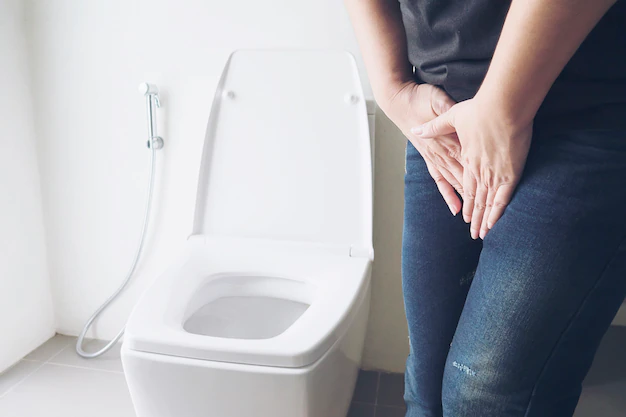Incontinence: Types, Causes & Precautions:
2nd Jan 2025
Incontinence is a common problem among older men and women. It is a condition that causes problems with muscles and nerves that help the bladder to hold or release urine or causes a bowel movement. Sometimes this condition can be distressing and lead to pressure sores, depression, or other mental illnesses.
Are you or someone you care about suffering from Incontinence? You might wish to know more about how it happens or what causes this condition. Read further to get detailed information about this condition, its types, its causes, and preventive measures you can take to lessen its consequences.
What is Incontinence?
If you feel a sudden urge to urinate, cannot reach the toilet in time, use the restroom several times a day, or cannot control your urine, you might be suffering from Incontinence. Incontinence is a condition that develops when there are issues with the nerves and muscles that allow the bladder to hold or discharge urine. You may experience a sudden urge to pee or start peeing when you cough or sneeze.
As you can see in the image below, our body keeps urine in the bladder until it is full. Specific nerves tell the muscles around our bladder that now it is time to pee, while other nerves tell the urethra (a tube leading from the bladder) to open so urine can exit our body. But in some cases, nerve signals can get mixed up, telling the bladder it is time to urinate even when it is not completely full. In the medical world, it is called OAB (overactive bladder).
Incontinence can occur for a number of reasons, including infections of the urinary system and vaginal irritability. There are even some medicines that can cause temporary bladder control issues. It is possible for Incontinence to last longer than it usually does due to weak pelvic floor or bladder muscles.
There are two types of Incontinence:
1.Urinary Incontinence
Urinary Incontinence is when you may lose control of your bladder or urinate all of a sudden that you cannot make it to the restroom. It is most common in pregnant women in their third or second trimester or people with constipation, menopause, or urinary infection, among other conditions. Incontinence can be a significant source of anxiety and depression because it causes people to isolate themselves and avoid social activity.
There are four basic urinary incontinence categories, which are briefly discussed below. It is possible to experience multiple types at once.
●Stress Incontinence
When you cough, sneeze, run, or lift heavy objects, your body puts pressure on your bladder, which results in pee leakage. This condition is known as stress incontinence. However, it has nothing to do with psychological strain. Additionally, women are more likely to be diagnosed with stress incontinence than males.
●Urge Incontinence
Urge incontinence occurs when there is a sudden or urgent need to pee, and the person may accidentally release urine before reaching the toilet. People suffering from this have an urge to pee multiple times throughout the day and at night.
●Mixed Incontinence
In this situation, you experience both urge and stress incontinence, which is treatable with medications, surgery, botox bladder injections, or vaginal inserts.
●Overflow Incontinence
The bladder is the organ that stores urine. This type of Incontinence occurs when you leak urine because your bladder is excessively full. Some people may suffer from this Incontinence if their bladder does not get completely emptied when they urinate. Overflow incontinence is more common in men who have prostate problems.
2.Fecal Incontinence
Bowel incontinence, also known as fecal Incontinence, is the loss of control of bowel movement that causes involuntary bowel elimination. It might be anything from the infrequent release of feces while exhaling gas to losing control of one's bowels.
When you suddenly feel the need to go to the bathroom but are unable to do so in time, it can be an uncomfortable situation. On the other hand, some people do not feel that sensation of pending bowel movements. Although anyone can experience this condition; women with chronic constipation, women who have just given birth, or people over the age of 65 are more prone to fecal Incontinence. In addition, if not treated, fecal Incontinence can cause physical discomfort or emotional anguish.
There are two types of fecal Incontinence:
●Urge Fecal Incontinence
In urge fecal Incontinence, you desire to pass your stool but cannot control it before reaching the restroom.
●Passive Fecal Incontinence
In passive fecal Incontinence, you are unaware that mucus or feces is flowing out of your anus.
Causes Of Incontinence
Different factors can cause both types of Incontinence (urinary and fecal).
Causes of Urinary Incontinence
Common causes of urinary Incontinence include:
●Vaginal irritation in women
●Excessive fluid intake
●Urinary tract infections (UTIs)
●Kidney or bladder stones
●Aging
●Pelvic organ prolapse
●Diseases like Alzheimer's, stroke, and Parkinson
●Chronic coughing
●Problems with the prostate
●Lack of physical activity or obesity
Causes Of Fecal Incontinence
Common causes of fecal Incontinence include:
●Diarrhea
●Constipation
●Gas and bloating
●Injury to the Nervous system, pelvic muscle, or rectum
Precautions
Be aware:
●May lead to bedsores, which may be difficult to heal. Therefore, it is better to prevent pressure sores than to try and heal them. To do that, use urine-resistant overlays, seat covers, and other medical sheepskin products to provide extra padding and comfort.
●Control will be assisted by having a high-fiber balanced diet.
●Physical activity should be a part of your daily routine. It aids with weight control and constipation prevention.
●Maintaining an upright toilet habit can help you tremendously.
●Encouraging people with Incontinence to drink more water to avoid deydration
●Reduce alcohol consumption and quit smoking.
In short, lifestyle changes can be beneficial in preventing and treating Incontinence. Therefore, you should have a balanced diet, engage in some physical exercise, keep a bathroom routine, and consult with your doctor.
Conclusion:
Incontinence is a condition that involves loss control of bladder and/or the anus. It can be caused by a variety of factors, including aging, diseases (such as coughing, Alzheimer's, stroke, and constipation), and a lack of physical activity, among others. It can result in awkward situations that can significantly impact your mental health. However, you may be able to control or prevent it.
You have seen some of our products in this Blog. To see more, click: MORE

